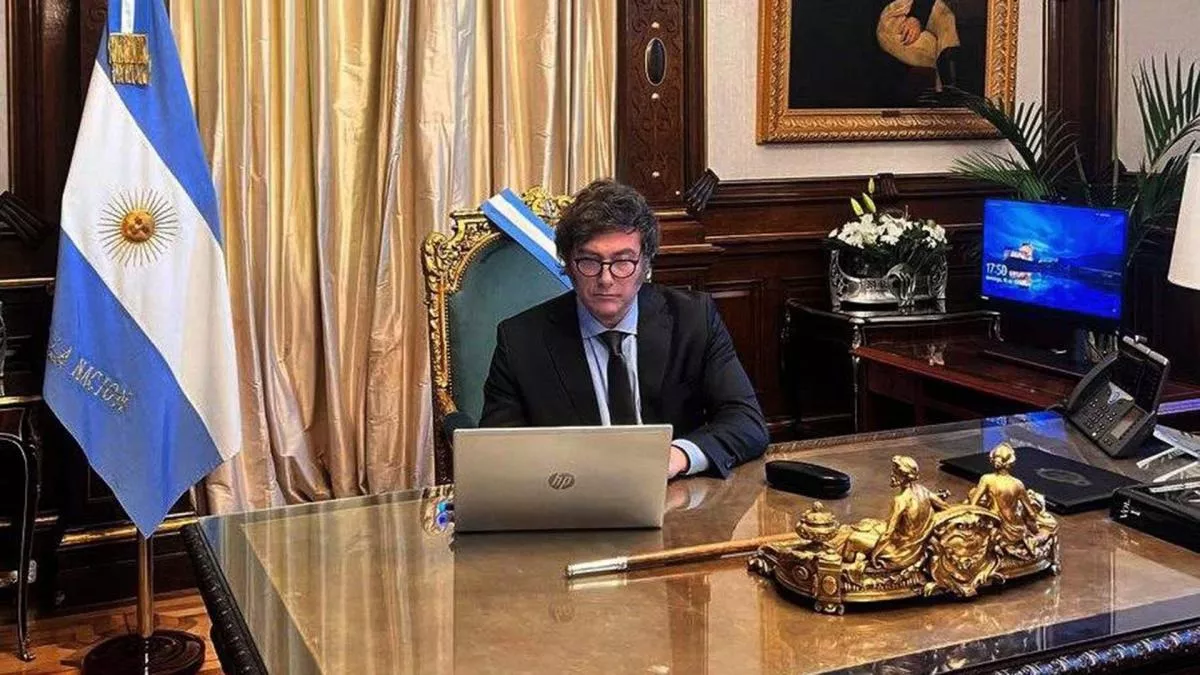“The Argentine miracle” at a crossroads Milei faces elections, scandals, and economic pressure
On October 26, Argentina is set to hold midterm elections, in which half of the seats in the Chamber of Deputies and one-third of the seats in the Senate will be contested. This vote is expected to serve as a critical test for the country’s president, Javier Milei, and his reforms, which have been shaking Argentina since 2023.
Since the 1970s, Latin America has served as a testing ground for neoliberal transformations, which were later adopted by ruling elites in other continents and countries. In the early 2000s, this policy triggered a backlash in several countries—Bolivia, Venezuela, Argentina—resulting in so-called “leftward turns.” Today, however, the political pendulum seems to be swinging in the opposite direction. A symbol of right-wing reforms is Javier Milei, the libertarian who won Argentina’s 2023 presidential elections, promising to completely dismantle the welfare state. Two years later, the country’s citizens now seem to have a chance to evaluate their leader’s reformist agenda.
Undoubtedly, Milei’s activity has been remarkable. When he took office, Argentina’s inflation rate stood at 211.4% per year, meaning that prices more than doubled within a year. The new president’s government managed to significantly slow this process. Monthly inflation, which had reached 25% in December 2023, dropped nearly tenfold by October 2024—to 2.7%. Annual inflation also began to decline.

To combat rising prices, Milei has also tightened control over government spending. In March 2024, the president announced the dismissal of 70,000 public servants, and by June, 25,000 people had already lost their jobs. By reducing subsidies, cutting the costs of maintaining the government apparatus, and implementing several other measures, Argentina’s new administration managed to reduce budget expenditures by 25%. Milei’s team made especially deep cuts to infrastructure spending—down 74%, regional grants—down 68%, social development—down 60%, and education—down 52%.
The new president also abolished subsidies for gas, water supply, and public transport. Transport companies that had previously received state subsidies were allowed to set their own tariffs. As a result, fares in Buenos Aires rose by 360%. Overall, reforms aimed at reducing subsidies for citizens caused the cost of services to increase by 400%. While in December 2023 the average Argentine family spent just over 30,000 pesos per month (about $30) on electricity, water, gas, and public transport, by September 2024, these expenses had risen to 141,500 pesos.
For the wealthy, Milei introduced a tax amnesty. According to experts, at the beginning of 2024, businessmen held $258 billion in assets outside the national financial system. By announcing the amnesty, Milei offered businesses the chance to declare previously undeclared assets in exchange for exemption from paying taxes for previous years. The Argentine government hopes to boost the treasury by $40 billion through this measure.
However, in recent months, Milei has faced serious opposition. Earlier this month, Argentine lawmakers rejected two presidential vetoes: one on university funding and another on allocating resources for paediatric healthcare. As a true libertarian, Milei considered funding these sectors unnecessary, but the deputies disagreed.
This parliamentary setback coincided with a high-profile criminal scandal involving Milei’s ruling party, “La Libertad Avanza” (Freedom Advances). Its leader in the Buenos Aires province, José Luis Esperta, was accused of close ties to Federico Machado, whom the United States has charged with drug trafficking and money laundering. Documents surfaced indicating that Esperta received a $200,000 transfer from Machado. Although Esperta denies any wrongdoing and withdrew from the election race, the damage to Milei’s party was already done.
The situation was further exacerbated by widespread public outrage in Buenos Aires province over a series of high-profile crimes committed by drug cartels. Argentina’s current president came to power on an anti-corruption platform. Yet, as early as 2023, the media published a recording in which a senior official in Milei’s new government discussed kickback payments with a pharmaceutical company. This scandal also implicated Karina Milei, the president’s sister and, according to gossip, his “grey eminence.”
However, it cannot be said that Milei’s position is hopeless. He still retains a large number of supporters in Argentina, many of whom are weary from decades of political instability. In early October, the Argentine president held a large-scale rock concert in Buenos Aires. The event served as the launch for his new book, The Construction of the Miracle (La construcción del milagro). Before an audience of 15,000 young libertarians, Milei performed covers of classic Argentine rock songs alongside a band that included several like-minded politicians.

The concert lasted about an hour and was accompanied by vivid visual effects, including footage of nuclear explosions and terrorist attacks projected on huge screens. Milei concluded the evening with a traditional autograph session, changing from his leather jacket into a formal suit.
However, the main hope for Argentina’s leader is not the young libertarians, but U.S. President Donald Trump, who has unconditionally supported his ally and like-minded counterpart. Promising to help the Argentine economy, Trump has delivered on his word. In recent days, the U.S. Treasury purchased Argentine pesos worth $20 billion. While this move may not fully align with libertarian principles, it is expected to stabilise Argentina’s economy in the near term. Argentine stocks rose on American markets.
Additionally, in April, the IMF opened a $20 billion credit line for Argentina, and at Trump’s personal request, the U.S. Treasury made one of its funds, worth $221 billion, available to Milei’s government.
On October 14, Milei’s economic team will fly to Washington for negotiations with the U.S. president, and U.S. Treasury Secretary Scott Bessent has promised urgent financial assistance to Argentina.
According to commentators from the American publication Time, in the upcoming elections Milei’s party is likely to receive less than 40% of the vote. This will reinforce the view within Argentina’s political establishment that Milei is discredited and reduce the number of actors willing to negotiate with him on a new round of unpopular reforms. Meanwhile, the president will soon face the need to devalue the Argentine peso, a move that will require full mobilisation of his supporters.
American journalists note that Milei’s difficulties will be exploited by his rivals, including members of the party of former Argentine president Mauricio Macri, who will demand greater involvement in political decision-making and concessions on reforms. Concessions from Argentina’s leader in these matters are highly unlikely, which could plunge the country into yet another political crisis.








